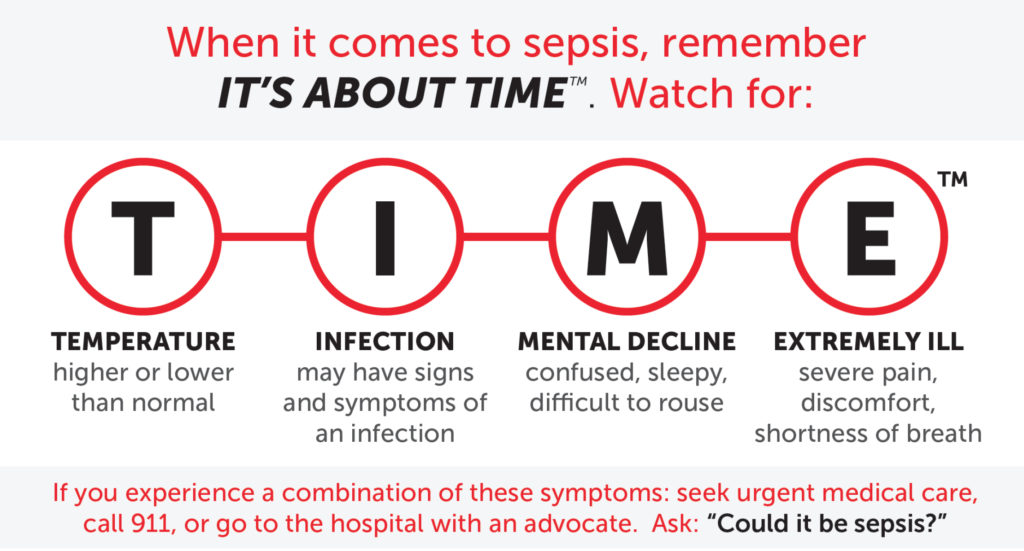Sepsis Awareness 2: Critical Facts Involving Seniors

The DFW Hospital Council (DFWHC) Foundation has been coordinating the Sepsis Strike Force over the past five years. Led by Patti Taylor, the DFWHC Foundation’s director of quality and patient safety services, the group is made up of representatives from hospitals across North Texas inspired by the goal to create awareness on the dangers of sepsis in our community. Over the next six months leading to Sepsis Awareness Month in September, the Sepsis Strike Force will post blogs and informational graphics across social media to support their 2021 goal of raising community awareness.
Sepsis is the body’s overwhelming and life-threatening response to infection which can lead to tissue damage, organ failure, and death. While sepsis is an equal-opportunity killer impacting the sick, the well and people of all ages, some groups are more likely to be affected.
The risk of sepsis can be reduced by preventing or quickly identifying infections. This includes practicing good hygiene and staying current with vaccinations, and seeking treatment when infections are suspected.
Many people fully recover from sepsis while others may have long-lasting effects such as amputations or organ dysfunction like kidney failure. Other after-effects of sepsis include memory loss, anxiety or depression.
When it comes to sepsis, remember It’s About TIME:
T – Temperature – higher or lower than normal;
I – Infection – may have signs or symptoms of infection;
M – Mental Decline – confused, sleepy, difficult to rouse;
E – Extremely Ill – “I feel like I might die,” severe pain or discomfor.
If you suspect sepsis, see your medical professional immediately, call 911 or go to a hospital with an advocate and say, “I am concerned about sepsis.”
Critical Facts for Seniors:
• More than 70% of sepsis patients are 60 years of age or older;
• More than 1.3 million adults 45+ are hospitalized with sepsis each year;
• Adults age 65+ are 13 times more likely to be hospitalized with sepsis than adults younger than 65;
• 63% of older adults 60+ admitted to the ICU present with sepsis upon admission;
• In older adults, sepsis is 1.96 times more likely to result in readmission to a hospital than non-sepsis hospitalizations;
• More than 40% of older patients have another hospitalization within three months of sepsis, commonly due to a repeat episode or another infection;
• Among older survivors of sepsis, 76% were more likely to require additional care after hospital discharge;
• 34% of patients hospitalized with sepsis are discharged to a skilled outpatient facility;
• Compared to patients with other diagnoses, patients hospitalized with sepsis are one-half as likely to be discharged home and 3 times as likely to be discharge to a skilled outpatient facility.
For information, please contact Patti at ptaylor@dfwhcfoundation.org.
